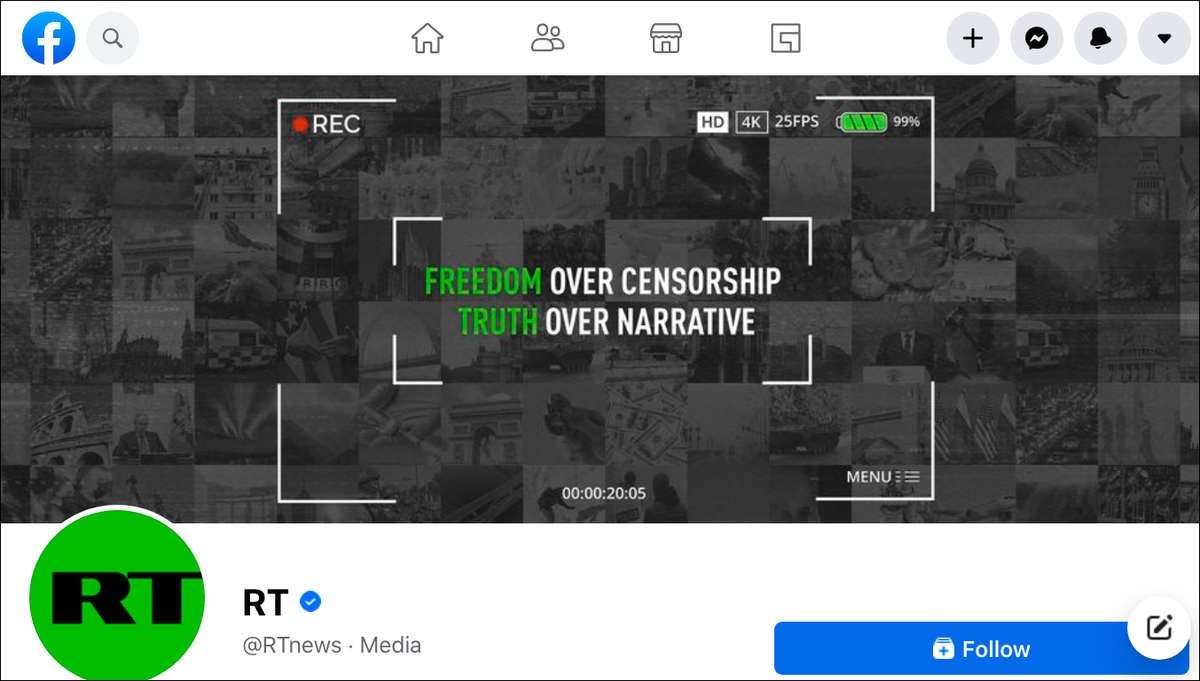
What was intended to be an
update on its quarterly community standards enforcement report, turned into a briefing of Meta’s role in Russia’s war on Ukraine, including steps it has taken to ensure users in Ukraine,
Russia and the EU continue to have access to news and sharing, except from one notable source: the Russian government.
Facebook has removed access to Russia’s state media
outlets – Russia Today (RT) and Sputnik – in the Ukraine and the EU, and has disabled their ability to sell advertising in other markets, effectively “demonetizing their
accounts,” Nick Clegg, president of global affairs at Meta said during the briefing.
Asked if Meta might consider suspending the Facebook and Instagram accounts for Russian
state media outlets altogether, Clegg said it has received requests from some governments to do that, but has not yet made that decision.
advertisement
advertisement
“I don’t want to pretend that
things are off the table,” he said, adding, “We all feel we have entered into new territory here.”
For the moment, Clegg said Meta’s focus is on ensuring that
opposition voices have stable and secure access to Meta’s platforms and that the best way to fight Russian propaganda is by enabling its opponents to continue to have “free
expression.”
“We’re a company, not a government,” he explained, adding that Meta already has taken “unprecedented action against” accounts
controlled by the Russian government, along with other major tech platforms.
“Remember, at the end of the day, the most powerful antidote to propaganda is not only restricting
its circulation, but [enabling users to express] answers to it,” he said.
Meta’s Russian government opposition has not been without consequences, he said, noting that
Russian authorities began “throttling” bandwidth to its Facebook and Instagram, which has mainly degraded video and “multimedia” content on the platforms, and created
latencies.
Clegg said the throttling was being done within Russia’s infrastructure and most likely was actions taken by the government and local internet service providers.
Asked if Meta would consider taking similar actions with its messaging service WhatsApp, Meta executives noted that it is a secure, encrypted peer-to-peer service, implying they would
not. However, they said they were adding encryption technology to Facebook’s Messenger service to ensure users could continue to communicate freely without intervention by the Russian
government.